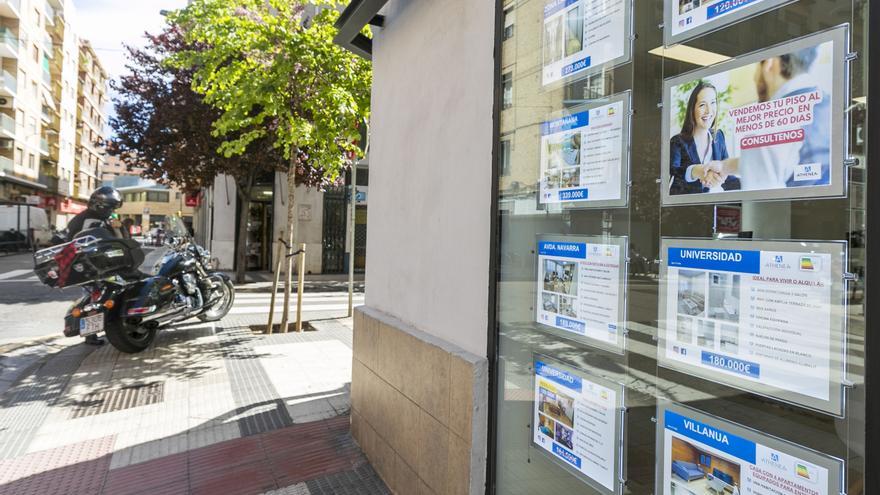There are wounds that never heal. Pains so deep that they are impossible to ignore. They are traumas that, even if they heal, cannot go away. In the Gaza Strip, every person still alive carries at least one of them. Doctors in Gaza say the war has caused an alarming increase in miscarriages. Of the children who survive, at least ten lose a limb every day.
No one can give official figures, but there are thousands of stories behind it. Like the one that Nahed Abu Ayyadah, a field officer for CARE’s health program, faces every day. “The first three months of pregnancy are the months when women can’t reach medical centers,” she told the newspaper by phone. “If there is a problem, it is out of her control and she will probably lose her baby,” she laments. Medical staff have long reported that 10 patients are losing their unborn babies in the enclave every day, compared with one or two before the war.
Everything in Gaza is in ruins. The few remaining medical services are overwhelmed and under constant threat of attack. “These women know that if they manage to get to a medical center, they will have to wait in the sun or in the same clinic, so many of them prefer not to risk it and not go for medical checkups,” admits the CARE representative. “Most of them have miscarriages due to psychological problems, as they have been suffering from seizures for months, their psychological state is unstable, and sometimes they do not get the support of their husbands and relatives,” explains Abu Ayada.
At this very moment, women across the enclave are forced to live with their dead fetuses. There are an estimated 60,000 pregnant women in Gaza. The military assault, severe malnutrition and lack of healthcare, with hospitals and medical centres targeted for attacks, are putting them and their unborn children at risk. Every day, around 180 women give birth in extremely dangerous and inhumane conditions. Many humanitarian organisations condemn the obstetric violence inflicted on these women by the Israeli authorities, who are denied any kind of psychological care when they lose their babies.
Children with trunks
But his arrival offers no guarantees for the future. Mothers are so malnourished that they cannot breastfeed their newborns, and children are starving to death. Meanwhile, those who survive are condemned to a life of hardship. It is common in the Strip to see children and babies with stumps. In early January, Jason Lee, Save the Children’s country director for occupied Palestine, reported that more than 10 children a day, on average, have lost one or both legs in Gaza since the start of the war.
“Because of the situation on the ground, we were unable to obtain a more recent figure than the 1,000 children who had their limbs amputated at the end of November,” Ricardo Pires, UNICEF’s chief of press, told El Periodico. “It’s clearly an understatement,” he added. Minors often have limbs amputated without anesthesia, limbs that doctors and nurses say could be saved under normal circumstances.
In one night, surgeon Ghassan Abu Sitta performed six amputations. Now outside the Strip, and with the help of his British citizenship, he aims to help children who managed to leave the Strip through the Ghassan Abu Sitta Children’s Fund. “Israel wants to leave Gaza with residents disabled for life,” denounces its spokeswoman, Dania Dashdali. A team of volunteers has been trying for months to transport the young evacuees from Egypt to the Lebanese capital, which has experts in this type of injury. So far, they have only managed to bring one child there.
Adam is still terrified when a nurse enters his Beirut hospital room to stab him. When he was just five years old, a single Israeli attack cost him his father, siblings, cousins and almost his entire left arm early in the war. His mother is wounded in a hospital in Egypt. He has only an uncle here. “The trauma is in the bodies of these children, and they suffer from it without social support or a sense of security,” says Dashdali. The closure of the Rafah crossing on the border with Egypt in early May has prevented other children like Adam from being treated in foreign hospitals.
“These children have lost their innocence and their faith in the world,” says Dishdali, a trauma psychologist. Despite the devastation in their words, they continue to move heaven and earth to help more children like Adam. The scale of the tragedy does not prevent them from remembering that behind each of these numbers are people, people who deserve more.

“Freelance social media evangelist. Organizer. Certified student. Music maven.”









